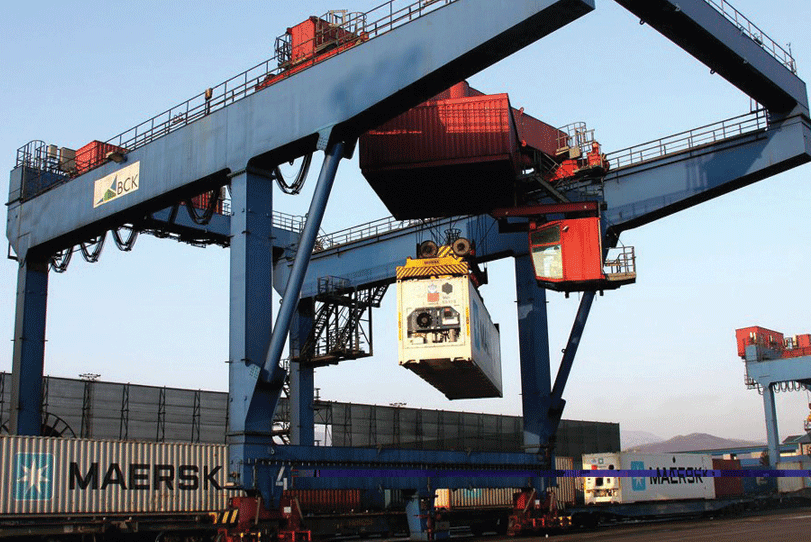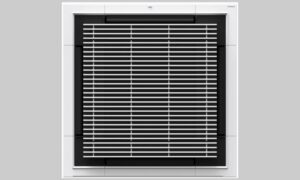To address a vital need in global trade, A.P. Moller – Maersk is developing an integrated cold chain offering that will reduce food waste, minimise complexity for customers and put the business in an affable and robust position to tap into the high-growth market for perishable goods.
Whether you are transporting fruits, fish or medicine, getting delicate, temperature-sensitive goods to market is a long, complicated and often wasteful journey. Importing and exporting fresh and frozen products comprise multiple players with very diverse offerings. Global cold chains are so fragmented that companies, big and small, experience frustrating inefficiencies in the physical movement of goods. The coordination efforts are complex with many handovers and little transparency that ultimately lead to waste of both time and some of the goods being transported. Maersk responds to these customers concerns by offering development of an integrated cold chain logistics. The ambition is to close major gaps in the supply chain and connect it through integrated end-to-end cold chain solutions that reduce cost and waste, explained Katharina Poehlmann, Global Head of Cold Chain Logistics at Maersk.
We are creating a one-stop shop that minimises the number of parties our customers need to deal with and delivers a consistent, high-quality value proposition and customer experience”, she said.
Building on leading position
Moving one in four refrigerated containers – commonly known as ‘reefers’ – globally, Maersk is building its cold chain offering from a position of strength. Despite a modest short-term outlook for trade growth, Maersk expects global reefer volumes to continue to significantly outgrow the dry container market in the coming years. As this projection only covers the oceanside of the cold chain, the total market represents a big opportunity for not only the Ocean business but also Logistics and Services.
The potential in cold chain logistics really embodies what the global integrator strategy is all about. As a service provider, we can deliver differentiating value to the customers and enable them to grow their businesses.
To this end, experts across Maersk are coming together to enable a truly integrated offering.
To name a few, APM Terminals is accelerating cargo flows and contributing to more visibility with intelligent use of data. Hamburg Sud and Sealand have extensive reefer insights, strong customer relationships and fast ocean connections on key reefer trade routes which allow tailormade offerings. Inland Services, an offering originating from APM Terminals and going to market under the Maersk brand as of August 2019, has built several cold stores and developed local, integrated customer solutions, which are being integrated into the end-to-end proposition.
In addition, Maersk’s assets make the value proposition stand out in the market, for instance with the ability to prioritise equipment and slots on the vessels, and to provide cold storage at critical points of customers’ supply chains.
Making cold chains unbreakable
In many markets, cold storage providers operate very locally. Customers therefore must engage with several providers across geographies and the many handovers cause breaks in the cold chain.
To close this gap in the markets, Maersk is investing in more and better storage options that will establish unbroken, connected cold chains from farm to supermarket. These facilities enable customers to store the produce closer to consumers, provide access to special capabilities such as blast freezing, boxing, repacking and labelling, and create the ability to balance supply and demand over time.
Today, Maersk operates cold stores in several regions and the footprint is growing with numerous development projects ongoing across the globe.
While our immediate focus is on regions that need quality storage here and now, our long-term ambition is to have a global footprint that can meet customers’ need for high quality capacity on a global scale,” added Poehlmann. The growth plan is being realised through a mix of acquisitions, greenfield investments and expansion of existing facilities. The next cold store to join Maersk’s network in 2020 is located in St. Petersburg, Russia. 40 percent of the 23,700 square meter facility will be dedicated to Fyffes, Europe’s leading banana importer and a Maersk customer, while the remaining capacity will help meet the high demands for storing and distribution of fish, meat, as well as fruit and vegetables across Russia.
Cookie Consent
We use cookies to personalize your experience. By continuing to visit this website you agree to our Terms & Conditions, Privacy Policy and Cookie Policy.















